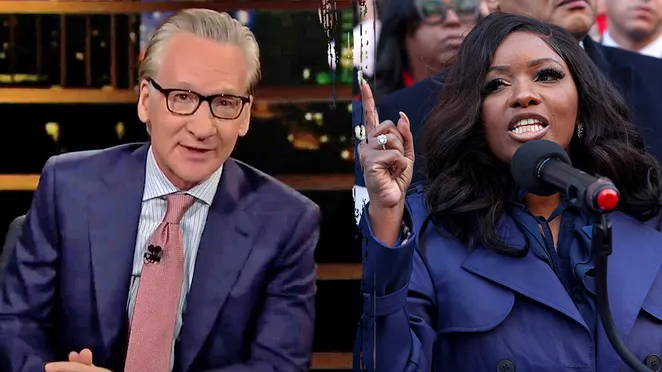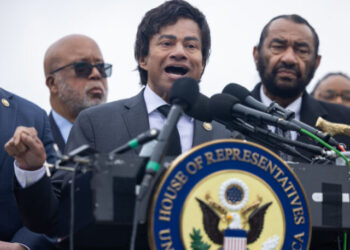In a recent episode of “Real Time,” host Bill Maher expressed his disapproval of comments made by Representative Jasmine Crockett, D-Texas, following President Trump’s address to Congress. Crockett, considered a rising figure within the Democratic Party, garnered attention for her candid reaction, stating, “This is not America. This is a terrible nightmare. Somebody slap me and wake me the f— up because I’m ready to get on with it.”
Maher took issue with Crockett’s choice of words, suggesting they lacked the decorum expected of a political leader. He remarked, “This is how a podcaster talks or some s—. Can you imagine, I don’t know, Obama saying, ‘Oh, man, dude. This s— is whack. F— it. Slap me. I’m f—ing over it.’ C’mon man.”
Beyond his critique of Crockett, Maher addressed broader concerns about the Democratic Party’s current trajectory. He emphasized the importance of appealing to centrist voters, arguing that the party’s focus on “woke” actions and policies may have contributed to recent electoral losses. Maher stressed that to effectively counter President Trump, Democrats must present themselves as a viable alternative that resonates with the broader electorate.
Highlighting recent missteps, Maher referenced a Democratic initiative that backfired, suggesting that such actions could alienate potential supporters. He cautioned that if independent voters perceive Democrats as more extreme than President Trump, it could jeopardize the party’s chances in upcoming elections.
Maher’s commentary underscores a growing sentiment among some political analysts that the Democratic Party needs to reassess its messaging and strategy. By focusing on issues that matter to a broader base and avoiding rhetoric that could be perceived as out of touch, Democrats may enhance their appeal to undecided voters.
As the political landscape continues to evolve, figures like Maher play a pivotal role in challenging parties to reflect and adapt. Whether the Democratic Party will heed such advice and adjust its course remains to be seen, but the ongoing discourse highlights the dynamic nature of American politics.




















